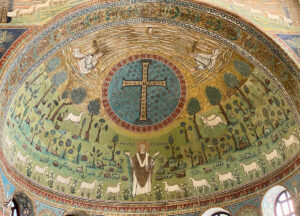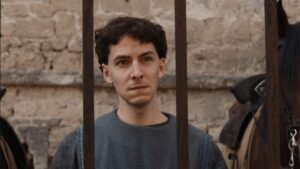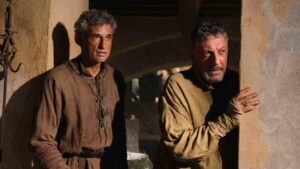If it is true that every director aspires to a film that can deliver it above all others to the memory of posterity, probably Dante it represents precisely this for Pupi Avati who dedicated more than a decade of loving studies and boundless admiration to the genesis of the work. The director had already published the novel last year High fantasySolferino publisher, which contains the entire screenplay in a suggestive narrative form with a refined language and a singular structure.
Getting ready to narrate the Supreme Poet must have been a titanic undertaking not only for the unattainable height of the “character” but also for the scarcity of the sources that for centuries has forced Dante to hypotheses and conjectures. Then another giant comes to the rescue, Giovanni Boccaccio, who had been a didactic enthusiast of Dante’s work and who had received from Dante the love for poetry, the only true joy in his life. The director therefore felt that he had found a perfect solution in speaking of Dante through Boccaccio’s enamored gaze, a gaze that essentially coincides with his own but that offered him the opportunity to create a fascinating game of literary references.
Questioning about Dante’s relationship with his own creativity and hoping that in the awareness of his genius he experienced sublimity, as Avati declares in the notes to the novel, were the inputs that set in motion the creative process from which a non-coincident Dante emerges. in everything with that of school memory, which lives its time burdened by the all human burden of fragility, doubt, fear, laceration and humiliation, but supported, after exile, by the indomitable hope of a return to homeland haloed by poetic glory.
Alessandro Sperduti has the difficult role of embodying the Poet and taking charge of all these nuances that he returns with punctuality and adherence, especially in the wide and segmented passages of love for Beatrice and affection for his friend Guido Cavalcanti, so much to be moved with certain looks overflowing love and pain at the same time. Boccaccio is interpreted with evident dedication by a magnificent Sergio Castellitto, who makes him a real and suffering character, his hands bandaged and tormented by the scabies that torments him and the need to rehabilitate, highlighting his profound spirituality, a poet considered heretic for having flogged unworthy popes and immoral ecclesiastical customs.
The film starts with the song Women who have an understanding of love, a lyric that Dante proudly claims, through the mouth of Bonagiunta Orbicciani met among the gluttons of Purgatory, as the one that started the “new way of poetry”, which is followed by the agony of the Poet in Ravenna watched over by a small crowd and by his son Iacopo . Thirty years later Boccaccio will be commissioned by the Company of Orsanmichele to carry a bag of ten gold florins to Sister Beatrice, Dante’s daughter, as compensation for the penalties inflicted by the city of Florence on her father.

Basilica of Sant’Apollinare in Classe
Boccaccio’s journey thus turns into a pilgrimage through the places traveled by the Poet that preserve his vestiges: the ancient residences in which he moved, the battlefield of Campaldino, the pine forest that leads to the basilica of Santa Apollinare in Classe from whose mosaics were inspired by some verses of Paradise. The Poet’s experience emerges in fragments from what are technically flashbacks, but, from the point of view of the narrative, the expedient of tying those pieces to places and direct witnesses, which, although old, could offer Boccaccio the balm of a memory or the solution of an enigma (the mystery of the discovery of the last songs of Paradise), anchors the man Dante in his time, to that complicated piece of the Middle Ages made up of struggles between opposing factions, papal interference and marriage contracts. And the brutal news stories that come down to us in the immortal portraits of Paolo and Francesca and of Count Ugolino (the only obvious references to the Divine Comedy) that had aroused the emotion of the Poet and had ignited his emotion also belong to his time. imagination. Death, which at that time claimed victims in disproportionate quantities, hovers with arrogance in the story and in the setting, seems to create a necessary counterpoint to amorous feelings, and the director insinuates, through the many dark images, a bitter reflection on duration and on the value of human life.
In the choice of building a sort of narrative frame within which to graft the biographical and poetic story (the lyrics taken from the Vita Nova constitute a subplot of suggestive effectiveness) it is probable that the director wanted to implicitly pay homage to Boccaccio who in those years – we are in 1350 – was completing the Decameron.
A shabby object, “the nuptial doll of a great lady”, a symbol of fertility that instead becomes a harbinger of death, is entrusted with the task of creating a hinge between the narrated time and that of the narration, an object that belonged to Beatrice which must become the a gift from a father, Boccaccio, to the child daughter of whom he tries to win the affection.
 Here the character Boccaccio, in which Avati reflects himself and pronounces words that actually belong to him, becomes the protagonist next to his idol, is a reflection of a new and in some respects romantic vision that Dante delivers to the spectators in the years of his marked youth. from the conflict between reason and sentiment.
Here the character Boccaccio, in which Avati reflects himself and pronounces words that actually belong to him, becomes the protagonist next to his idol, is a reflection of a new and in some respects romantic vision that Dante delivers to the spectators in the years of his marked youth. from the conflict between reason and sentiment.
Dante is first of all guided by Love, an occult and devastating force that will determine his path as a human being and as a poet and his Beatrice is more earthly woman than angel woman. The slender and blonde Carlotta Gamba makes her a restless girl and troubled by the dedication of a boy, met for the first time as a child, who follows her to look at her from afar, who smiles at her on the wedding day despite the pain is crashing into his chest . And the scene in which Beatrice, climbing the stairs that will lead her to her home as a married woman where she will soon consume the wedding, seems to suggest the sonnet is beautiful. So kind and so honest it seems in an atmosphere of magical suspension. Equally poetic is the choice to represent the face of Beatrice dead marred by smallpox, that face that in the eyes of the poet will remain splendid forever, that face that will induce him to “say about her what was never said about any”. In fact, Beatrice will return to her verses as blessed and will guide him in the ascent to Heaven, no woman had ever been sung in this way.
The exile is compressed into a few symbolic scenes, such as the one in which the exile traces on a sheet the names of the dead to be placed in the otherworldly worlds, and finally the circle closes returning to the initial image: Dante dies. The moment is underlined by the storm like the other passages considered crucial by the director, and Avati imagines having his son Jacopo collect the last words of the Poet who has finally come to God, “at the end of all desires” (Paradiso, XXXIII).
The film is directed with an exquisite formal research with a strong pictorial imprint, enhanced by the photography by Cesare Bastelli, who dresses the interiors with lights and shadows and the exteriors with an antique patina, and by the disruptive musical commentary by Lucio Gregoretti and Rocco De Rosa. .
 The whole acting is of a high level, but the particular expressive force of Romano Reggiani emerges, which well represents the aristocratic pride of Guido Cavalcanti, Leopoldo Mastelloni who offers a grotesque, greasy, slimy and querulous Boniface VIII, and then again Alessandro Haber, the ‘indignant abbot of Vallombrosa, Enrico Lo Verso, the confident travel companion Donato degli Albanzani, Milena Vukotic, the junk dealer, Erica Blanc, the elderly Gemma Donati, Morena Gentile, the goiter woman, Gianni Cavina, the old Piero Giardina and Valeria D’ Howitzers who gives Sister Beatrice an intensity of rare beauty. To her and Sergio Castellitto the final scene of the film – a landing for Boccaccio, a caress for the embittered elderly nun who cannot forgive – which is imprinted in the eyes and in the heart: a man and a woman hold hands in the dim light of the cloister, behind them, not visible but evoked, the Tree of Paradise that no longer produces apples since the death of the Poet and all around the faint glimmer of fireflies that look like stars, those stars whose names the Poet knew all about, those stars that close the three canticles with a single word.
The whole acting is of a high level, but the particular expressive force of Romano Reggiani emerges, which well represents the aristocratic pride of Guido Cavalcanti, Leopoldo Mastelloni who offers a grotesque, greasy, slimy and querulous Boniface VIII, and then again Alessandro Haber, the ‘indignant abbot of Vallombrosa, Enrico Lo Verso, the confident travel companion Donato degli Albanzani, Milena Vukotic, the junk dealer, Erica Blanc, the elderly Gemma Donati, Morena Gentile, the goiter woman, Gianni Cavina, the old Piero Giardina and Valeria D’ Howitzers who gives Sister Beatrice an intensity of rare beauty. To her and Sergio Castellitto the final scene of the film – a landing for Boccaccio, a caress for the embittered elderly nun who cannot forgive – which is imprinted in the eyes and in the heart: a man and a woman hold hands in the dim light of the cloister, behind them, not visible but evoked, the Tree of Paradise that no longer produces apples since the death of the Poet and all around the faint glimmer of fireflies that look like stars, those stars whose names the Poet knew all about, those stars that close the three canticles with a single word.
With coherence Avati mostly follows the biographical cues provided by Treatise in laude by Dante del Certaldese and in doing so he sometimes deviates from the sparse historical sources, as with regard to the marriage with Gemma Donati, which had been contracted in adolescence, therefore well before Beatrice’s death. And, in showing us this young Dante, the director fades, leaving her against the light, the clear awareness of his genius that must have made him fear more than any other (perhaps more than the lust on which he lingers) that sin of pride that tried to stem what the more he felt its seduction. Not for nothing, as Piero Trellini pointedly observed in his Danteidethe Divine Comedy it can be perceived as the edification of the compensatory mythology of himself desired by the poet. The trait given by Avati to his work, which constitutes a unicum in his filmography, is therefore the result of a precise choice, what he wants to define and circumscribe is the image of the Dante dearest to him, the one he will long for forever with “the ‘high fantasy’ that belongs to the great artists, the Poet who ‘made his emotion become the emotion of the world’.
https://www.youtube.com/watch?v=SKgniscinaDgOQ
DANTE
Release date 29 September 2022 (Italy)
Historical genre
Year 2022
Directed by Pupi Avati
Actors Sergio Castellitto, Alessandro Sperduti, Enrico Lo Verso, Alessandro Haber, Gianni Cavina, Leopoldo Mastelloni, Ludovica Pedetta, Morena Gentile, Romano Reggiani, Carlotta Gamba, Paolo Graziosi, Mariano Rigillo, Eliana Miglio, Valeria D’Obici, Giulio Pizzirani, Erika Blanc, Milena Vukotic, Nico Toffoli
Country Italy
Duration 94 Min
Distribution 01 Distribution
Boccaccio’s pilgrimage in the footsteps of Dante, in the hall the new film by Pupi Avati
Subscribe to the Article21 Newsletter
Boccaccio’s pilgrimage in the footsteps of Dante, in the hall the new film by Pupi Avati – Article21
